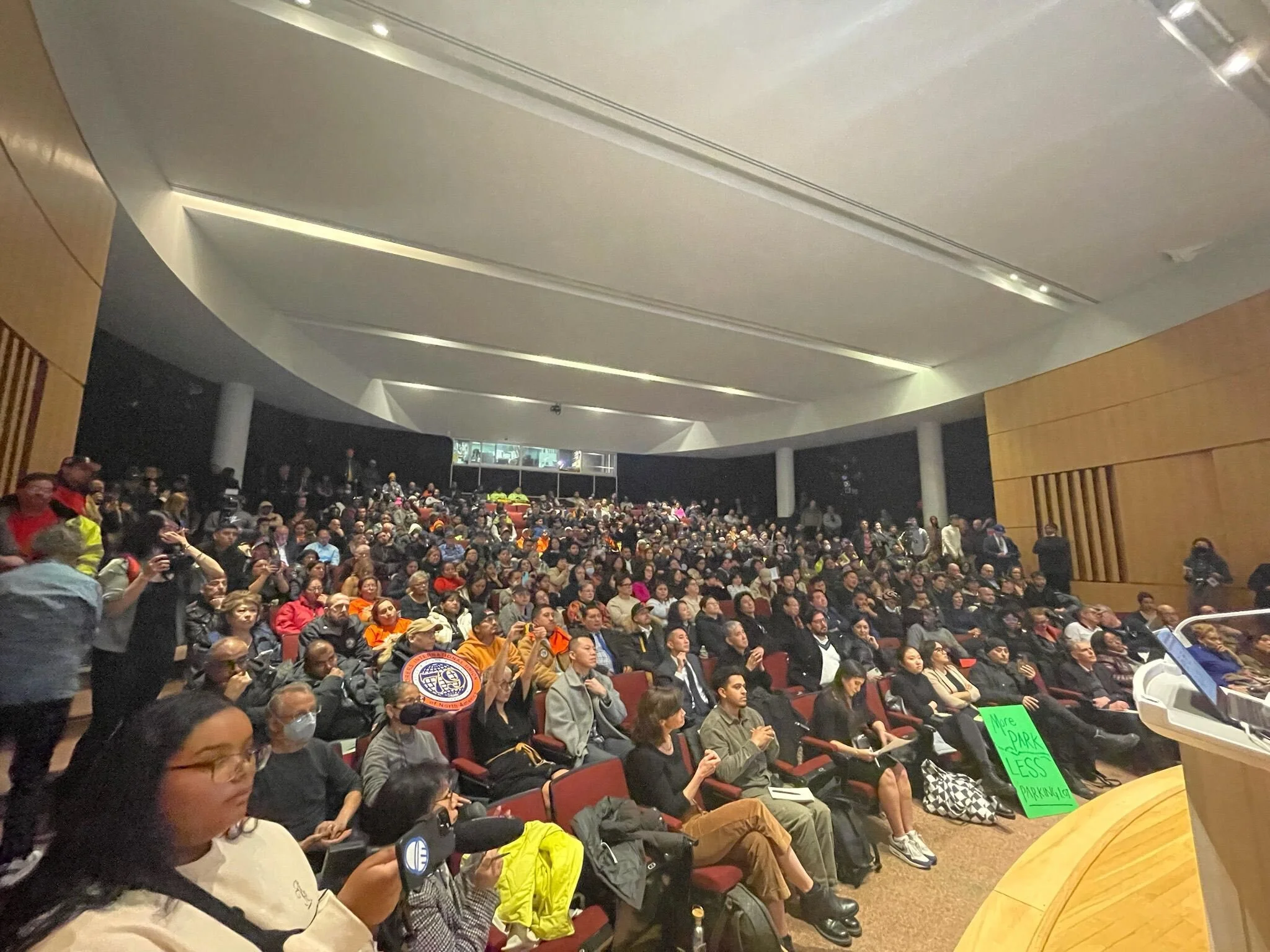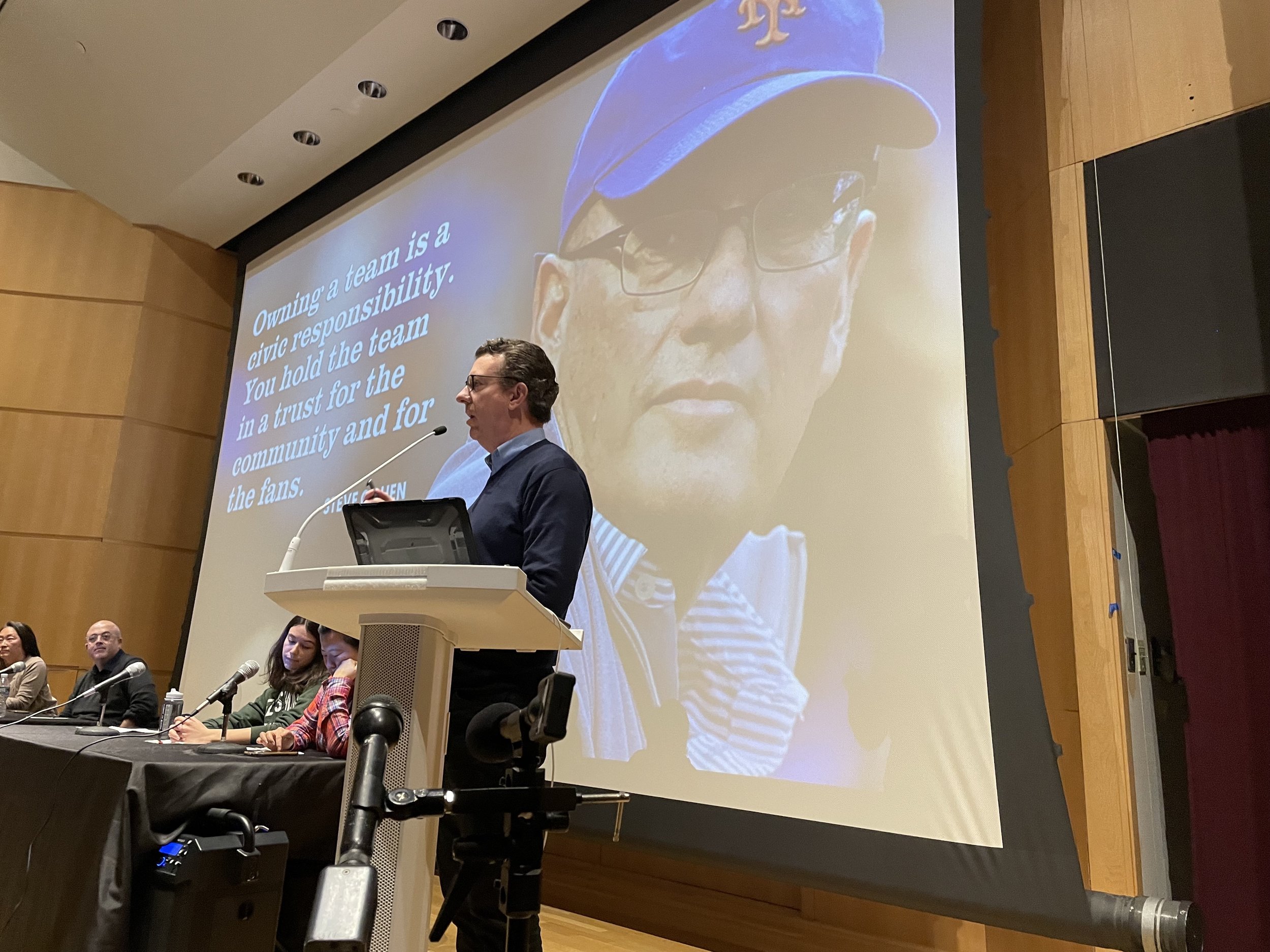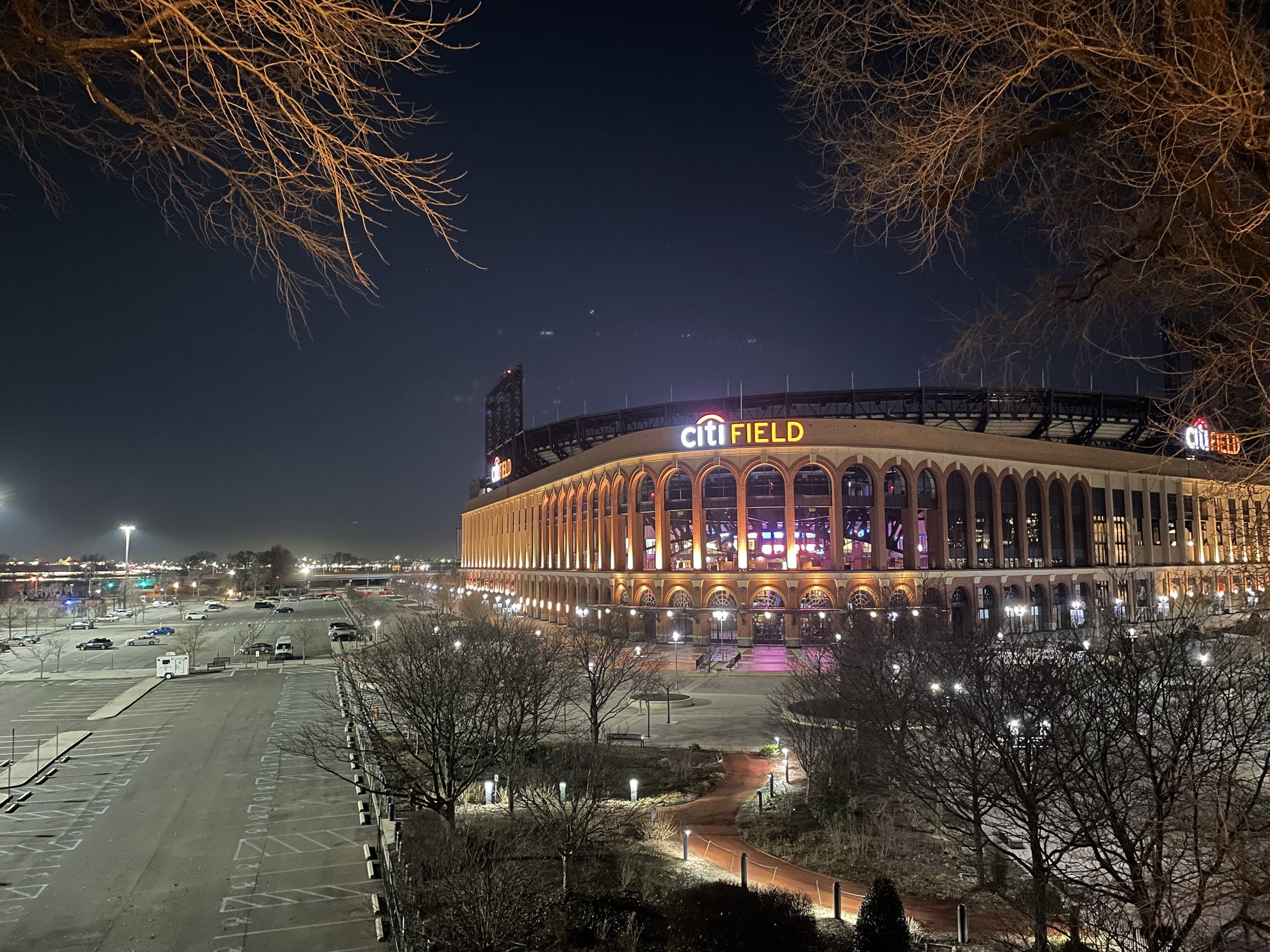Ramos nears decision on Cohen casino plan
/State Senator Jessica Ramos held her third town hall on Mets owner Steve Cohen’s plan to bring a casino to Citi Field on Wednesday, Feb. 7, 2024. Photo via Ramos/X
By Jacob Kaye
State Senator Jessica Ramos said this week that she’s nearly ready to decide whether or not she’ll support New York Mets owner Steve Cohen in his bid to build a casino and entertainment complex on Citi Field’s parking lot.
Ramos, who held her third and potentially final town hall on Cohen’s $8 billion casino pitch on Wednesday, has the power to make or break the project, which would be built on a tract of city-owned land technically designated as parkland.
In order for the project to be built on the lot, Ramos, and her Assembly counterpart Jeff Aubry, would have to introduce a bill in Albany allowing Cohen to forgo the land’s designation – crucially, Cohen would also need to win one of three downstate casino licenses expected to be handed out by the state’s Gaming Commission in the next year to year and a half.
Though Aubry introduced such a bill last year and is expected to do so again this year, Ramos has yet to introduce what is known as a parkland alienation bill.
Should she decide to support the project, Ramos would have to write, introduce and pass the bill before the end of the state legislature’s session at the start of June.
Despite the ticking clock and the three town halls she’s held on the plan, Ramos said Thursday that she had yet to make up her mind about supporting Cohen’s proposal or not.
“I want to use all the time that we have to make sure that the community is having the conversation – this is a really important decision,” Ramos said. “I do think that still not enough community members know…that there is this possibility of a casino coming, and our community does deserve to know.”
“I'm going to continue trying to inform and educate the public about land use and I hope to come up with a decision by the end of session,” she added.
Ramos, who has been rumored to be mulling a potential mayoral challenge to Mayor Eric Adams in 2025, said her current hesitation can be tied to the weightiness of the decision.
In addition to the casino, the plan for Metropolitan Park includes building a hotel, 20 acres of new park space, a live music venue, a food hall, bars, restaurants, public athletic fields and several parking garages in the immediate 50-acre area surrounding the baseball stadium.
The project, if it moves forward, would likely have a major impact – both good and bad – on the surrounding neighborhoods of Flushing, East Elmhurst, Corona and Jackson Heights, as well as the borough at large, Ramos said.
“This is a very important decision, perhaps one of our most important collective decisions in our generation,” the state senator said. “It is not a decision that I, or any of you, should take lightly.”
Unlike the first two town halls Ramos held on the plan known as Metropolitan Park, Wednesday’s town hall was structured somewhat like a debate.
On one side of the stage of the auditorium at the New York Hall of Science sat representatives for Metropolitan Park. On the other side sat representatives of an alternative plan known as Phoenix Meadows, a proposal to build a park atop a parking structure on the parking lot outside of Citi Field.
Both sides presented their respective plans and then took questions from town hall attendees.
Representatives for both plans claimed that their respective proposal would help to correct the past sins of the site – the lot was designated as parkland by Robert Moses, the city’s most infamous urban planner, whose projects often attempted to make the city a car-centric city and were also often rooted in racism. Throughout its history, the land has mostly either been a marsh, a dump or a parking lot.
Michael Sullivan, a top official with Metropolitan Park, presents on Steve Cohen’s casino plan during a town hall on Wednesday, Feb. 7, 2024. Eagle photo by Jacob Kaye
Those with Metropolitan Park said that their plan would bring economic benefits to an area that otherwise hasn’t seen consistent economic growth in decades. They did not mention the casino for the first 15 minutes of their presentation despite the fact that no other part of the project will be built if Cohen is unable, for whatever reason, to build the casino.
Those with Phoenix Meadows said that their plan would allow Queens residents to take the “opportunity to invest in parkland in a way that serves all of our neighbors and all of our neighbors’ needs without draining the health and wealth of our existing communities and neighbors.”
A majority of those in attendance at Wednesday’s town hall appeared to be in support of Metropolitan Park over Phoenix Meadows, a break from previous town halls where there was far more opposition to the casino plan. A number of Metropolitan Park supporters on Wednesday were union members, most of whom left before the final speaker got to the mic shortly before 10 p.m.
Though a number of speakers said they were skeptical of Cohen and his team’s casino and its effects on its neighbors, a number of Metropolitan Park supporters also sternly questioned the Phoenix Meadows plan, knocking it for its non-existent funding and because the coalition behind it had allegedly not reached out to nonprofit leaders in historically Black areas of East Elmhurst.
The Phoenix Meadows plan, which was created in response to Cohen’s proposal, was put together by a coalition of around half a dozen nonprofits called the FED UP coalition. It was introduced publicly following a rally just a few days before the town hall.
Wednesday marked the first time the plan had been presented to Ramos’ constituents through the town hall format and some said they were confused about why the plan – which its organizers said was 30 percent complete – was being shown to them so late in the game.
Ramos said that her decision to present constituents with the plan, which she herself had only been briefed on weeks earlier, was out of her desire to create a process for reviewing casino proposals where there is none.
“I want our community to also have a learning experience with making this decision,” Ramos said. “I don't think very often enough we are given that opportunity to talk things through beyond when a developer can spend money to survey the community.”
“I don't want to hear that anybody didn't have the opportunity to be heard,” she added. “The point of these town halls is that I also want to be very transparent and I want people to realize that whatever the decision will be was thought through.”
The state senator, however, did acknowledge that the two camps behind the proposals were not on equal footing.
“I do think that the entire community should be able to hear about the ideas, even if they don't have the funds or have had the time that the billionaire’s proposal has,” she said.
Mets owner Steve Cohen has proposed building a casino and entertainment complex on Citi Field’s parking lot. Eagle photo by Jacob Kaye
Cohen – and the dozen other developers vying for a casino license – are expected to have their requests for proposal submitted to the state’s Gaming Commision made public in the coming months.
It’s likely Ramos will issue her decision on the project around that time.






